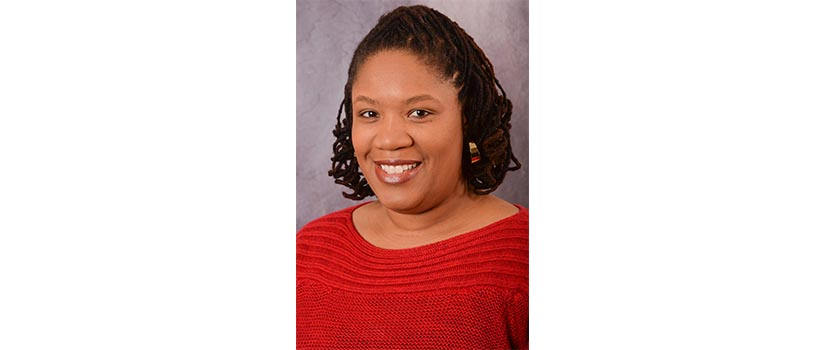
Meet our new AFAM Studies Director: Dr. Qiana Whitted
AFAM Studies’ new director, Prof. Qiana Whitted is an associate professor in the Department of English and African American Studies. She is a graduate of Hampton and Yale Universities. In her professorial role, Whitted
specializes in 20th-Century African-American literature, cultural studies and American
comic books. She is the co-chair of the International Comic Arts Forum (an annual
conference in comics studies) and later this fall she will begin working as editor-in-chief
of Inks: The Journal of the Comics Studies Society. In March 2019 her book titled EC Comics: Race, Shock, and Society Protest will be published by Rutgers University Press. Shortly after moving in to the corner
office, I talked with her about her vision for the AFAM Studies Program.
How long have you been a joint professor with AFAM, and what did you learn about the
program that inspired you to want to be its next director?
Shortly after becoming a core faculty member in AFAM in 2010, I also began working
as the program’s assistant director, primarily to advise students and update our curriculum.
It was this experience – being able to meet each of our students personally, to guide
their progress, and talk about their goals – that inspired me to become more involved.
And as a scholar with a PhD in African American Studies, whose work crosses boundaries
in literature, history, cultural studies and comic books, I have always enjoyed introducing
my students to the ways that interdisciplinary study can deepen their learning experience
and broaden their career prospects.
It can be overwhelming to move into such a large role. How did you prepare, and did
you come in with a set agenda of what you wanted to accomplish first?
I’m grateful for the model of leadership that Dr. Val Littlefield provided during
her eight years as Director. Much of my preparation comes directly from seeing her
in action. She worked tirelessly with students, faculty and community members who
want to see AFAM Studies flourish. While I get up to speed on the policies and procedures
of this new position, my agenda will be to build on Dr. Littlefield’s foundation with
an emphasis on increasing the number of students who take our courses and continuing
to raise the program’s visibility on campus.
What is your long-term vision for the program?
Building a student-focused, faculty-driven program is central to my long-term vision
for AFAM Studies. I feel strongly that every USC student, no matter his or her race
or major, should complete at least one course in African American Studies before graduation.
Whether you are studying the freedom struggles of the past, the strategic indirection
of African American humor, or the impact of racial microaggressions among millennials,
a course in AFAM Studies offers invaluable insight into how to successfully navigate
our world today. I’m also committed to helping more AFAM Studies majors and minors
expand their educational opportunities beyond campus through community service, internships
and study abroad.
Now, for some fun! What is your favorite:
- movie: I managed to see Black Panther five times this year!
- ice cream flavor:Rocky Road
- super human power?One of my favorite comic book heroes is Swamp Thing– he’s made of plants and has the ability to make things grow at will. That would be a pretty awesome power.
- Dinner with five people (past and present): who would you invite?James Baldwin, Gwendolyn Brooks, Jackie Ormes, Toni Morrison, and Michelle Obama.